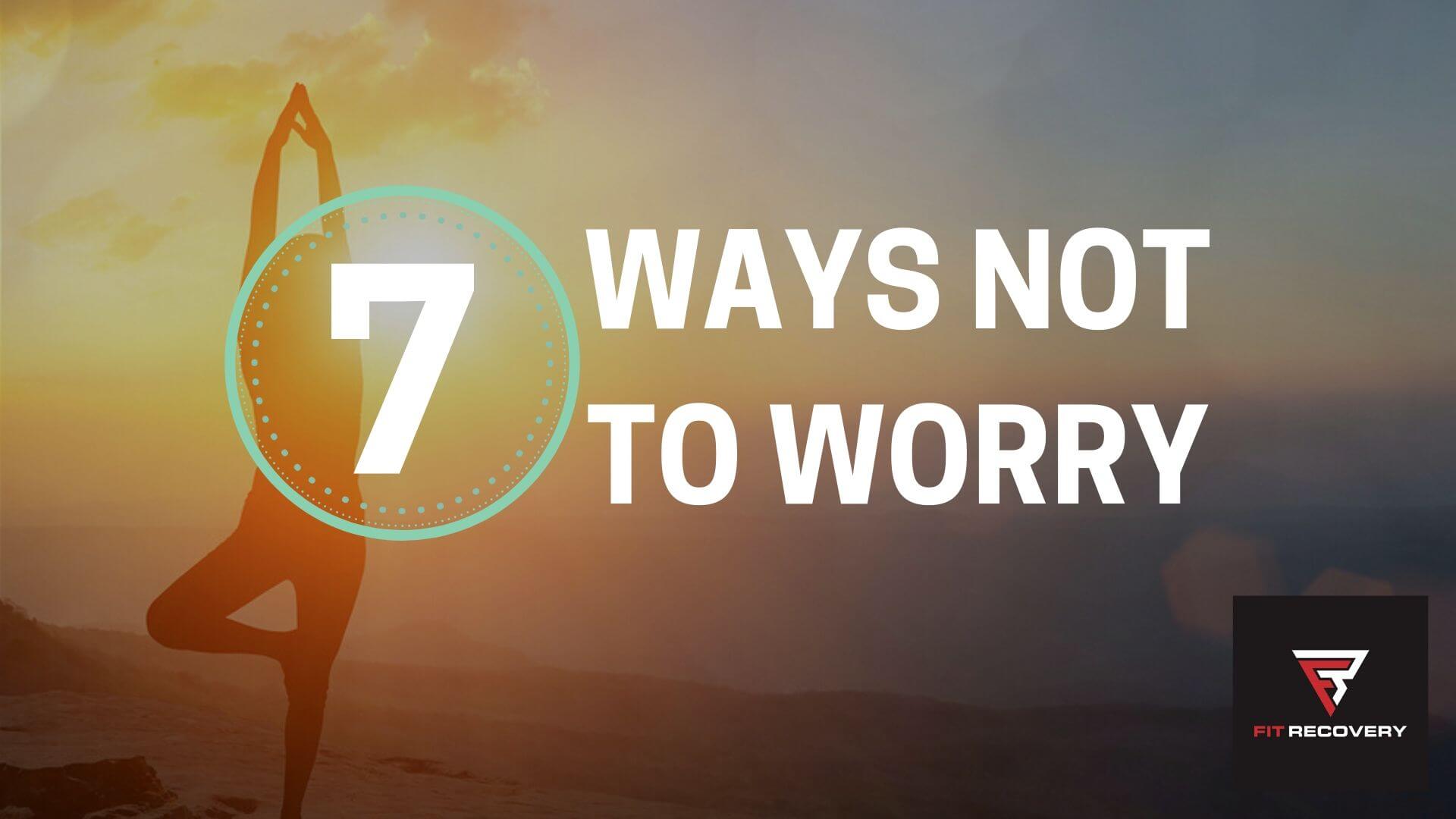In this video, I’ll discuss the strategies that helped me to stop worrying.
For a very long time, I used alcohol to put my worries to rest. They simply came back in the morning, 10 times worse.
I’d argue that the best way to stop worrying once and for all is to stop drinking.
Hangovers and withdrawal symptoms cloud our minds, blinding us to potential solutions to problems. Alcohol-induced neurotransmitter deficiencies blow our negative emotions WAY out of proportion.
But what should we do to stop worrying if we’ve already quit drinking?
I will list my Top 7 strategies for defeating worry in the video below. This is a subject I know something about, because I worried about countless things after I quit drinking. Even after I’d done the right thing and quit drinking, I spent too much time worrying about things like:
- Returning to alcohol addiction
- Having damaged my reputation after weeks in detox
- Failing to find a new career that paid enough money
- Living a mediocre life and failing to find a purpose
- Losing my parents before I could turn my life around
- Scaring off potential dates because I don’t drink (in retrospect, very silly)
As you can see, I had a number of negative thoughts swirling around in my mind. Actually, these are just the tip of the iceberg. At certain points in time, the worst case scenario for every one of them seemed likely to become true.
But ultimately, not a single one of them became true. Perhaps I was lucky, but I also managed to stay focused on what I wanted rather than what I feared. During my worst moments, I used the strategies I’ll share with you now.
You can watch the video here:
(Click here to watch the video on YouTube)
My Top 7 Ways To Stop Worrying
In the video above, I explain why I use these strategies – but I’ll give you the basic rundown here:
- Do something about it! Taking decisive action ends procrastination, which causes worry.
- If you can’t do anything about it, crowd it from your mind by filling your free time. It’s hard to feel worried after yoga class or a heavy weight-lifting session.
- Identify ways to improve on the worst possible outcome. What kind of decisive action could you take to avoid the worst possible outcome? If nothing, then what would you do if the worst possible outcome came to pass? Might you discover that it’s not the end of the world after all, and you really do have options?
- If you’re worrying about a hard choice, make a decision chart! After quitting drinking, I had to decide between trying to find another job in finance or get a low-paying job in a gym. I wrote these alternatives on top of a page. On the left side, I made a column listing attributes I cared about – compensation, day-to-day satisfaction, life’s purpose direction, etc. I assigned a number for each attribute from 1-10 for each potential career. I chose the gym, built on that experience to build Fit Recovery, and have never looked back.
- If you’re worrying about things you have to do, confine them to Google Calendar or Evernote. I can’t keep everything I have to do each day in my mind. Google planner alerts me 30 minutes before I have to do something I’ve scheduled, and Evernote keeps all of my random ideas in order. No more time worry!
- Remember that we are ALL equipped with worry-prone brains. Our brains evolved to scan for threats constantly (saber-toothed tigers, poisonous insects). Over time, we can learn to consciously dissociate from threat-scanning and become more tranquil. Turn off this subconscious radar unless you’re in a dangerous situation, in which case it’s doing its job!
- Read How To Stop Worrying & Start Living. This is the best book I’ve ever read for taking your mind back from excessive worry and stress. I read a chapter every night after I quit drinking. It helped me avoid returning to alcohol to alleviate my numerous worries at the time.
If you’ve recently quit drinking, you might be suffering from temporary biochemical depression that leads to excessive worrying. A supplement like Calm Support can work wonders for helping you to relax and put irrational worries to rest.
Concluding Thoughts
Because alcohol addiction is a biochemical disorder, I place a lot of emphasis on body and brain repair.
But it would be a mistake to ignore lifestyle habits and mental reconditioning.
Whether the missing links in your recovery have been primarily physical or psychological, the good news is that small tweaks can yield enormous change over time.
I hope you enjoyed this video! Be sure to subscribe to Fit Recovery on YouTube and stay posted for more.







